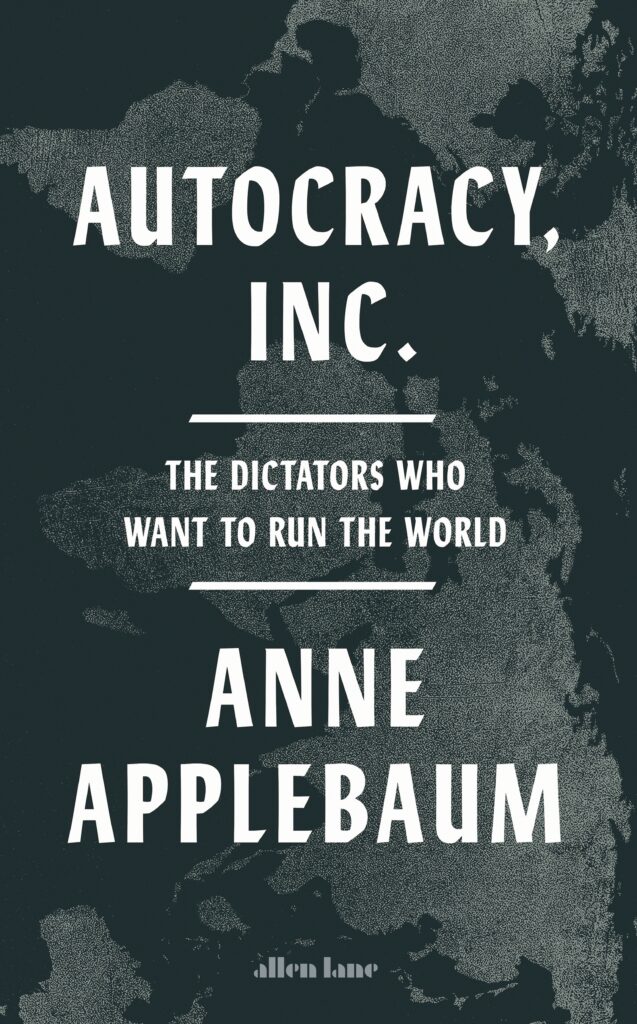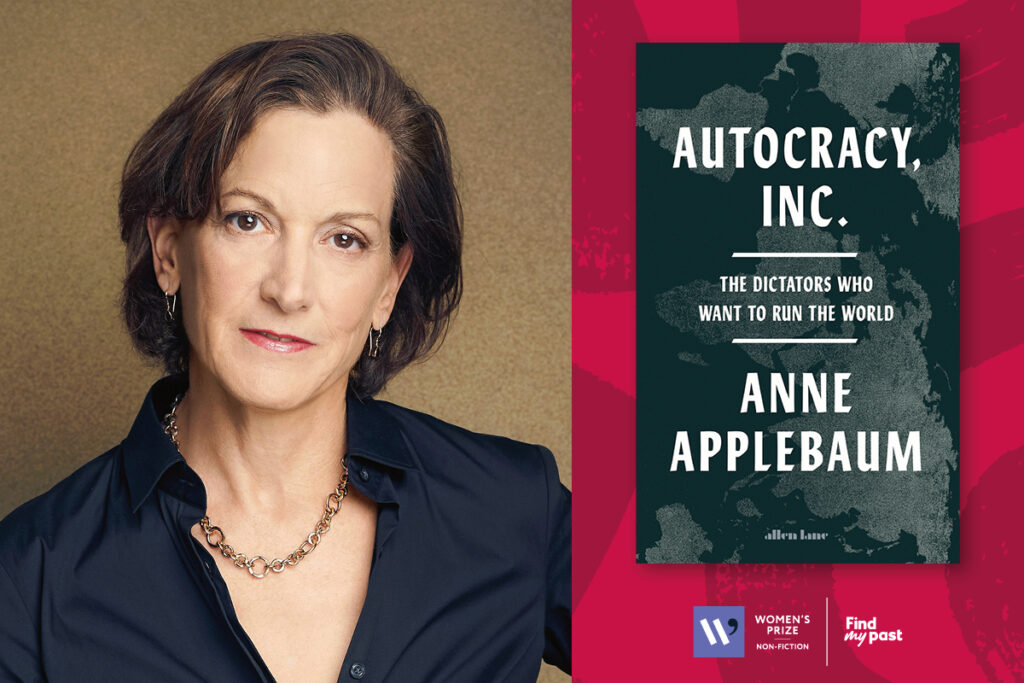Autocracy, Inc.: The Dictators Who Want to Run the World by Anne Applebaum uncovers the international networks trying to destroy the democratic world.
Longlisted for the 2025 Women’s Prize for Non-Fiction, judge Emma Gannon says: ‘This is an urgent, important, eye-opening book that explains the world we live in today, and how liberal democracy is under threat. It is not a walk in the park to read and is not supposed to be. An urgent read for current times, and a critical reminder of how we can individually and collectively show up, make a difference and hopefully turn the tide for the better.’
To find out more about the book we spoke to Anne about her writing, inspiration and current reads.
How would you describe your book to a new reader?
Autocracy, Inc. describes a group of dictators – Russian, Chinese, Iranian, Venezuelan, Belarusian and North Korean, among others – who don’t share an ideology, but are nevertheless united by their common desire to make money and stay in power. They also share a common enemy. That enemy is us: Europe, America, the democratic world. In Autocracy, Inc., I argue that while we helped create this autocratic network, we can fight back against it, not least by changing our own societies.
Did you have any revelation moments when writing your book? When the narrative and your objectives all fell into place?
For me, the big revelation came before I started writing. Over several years I’d had long conversations with opposition activists from all the autocratic world – Russia, Iran, China, Venezuela – and I gradually realised that they were saying many of the same things. I saw a pattern, and began to explore it.
What is the one thing you’d like a reader to take away from reading your book? Is there one fact from the book that you think will stick with readers?
I would like readers to be able to identify autocratic propaganda when they see it or hear it. As for what will stick with people – I think the story of Evan Mawarire, a youth past and accidental democracy activist who briefly believed he could change Zimbabwe, is one that readers will remember for a long time.
How did you go about researching your book? What resources did you find the most helpful?
Autocracy, Inc. is really the culmination of a lot of work I’ve done over many years: conversations, travel, friendships, reading. The hard part was pulling all of that together in a single place.
Which female non-fiction author would you say has impacted your work the most?
Hannah Arendt, because she went out of her way to grapple with the biggest and hardest problems of her time.
What is the best piece of writing advice you have ever received?
‘All good writing is re-writing. First drafts are meant to be discarded.’
Is there a non-fiction book you recommend all the time? If so, what is it and why do you recommend it?
I have not only recommended The Best Minds, by Jonathan Rosen, I have given it to several people. It’s an unusual book because it is both a memoir, as well as an intellectual history. Rosen writes movingly about a childhood friend who became schizophrenic; he also explains how the treatment of schizophrenia evolved over the last few decades. Then he puts both of these narratives together in order to explain the tragic outcome of the story.
What are you currently reading?
The Empusium by Olga Tokarczuk. I find that it’s very important to keep reading fiction, even while writing non-fiction, since that it makes you continually think about plot, character and style.









